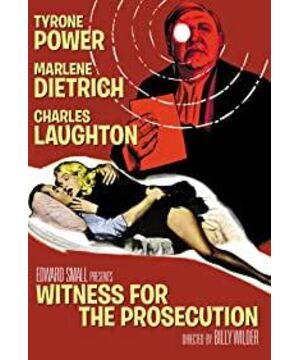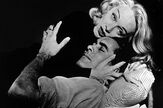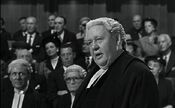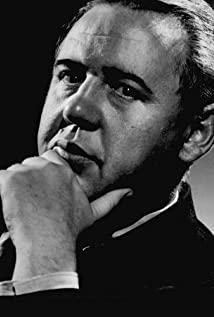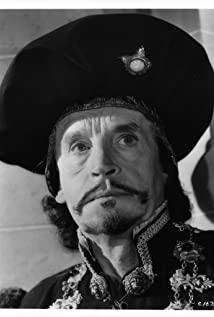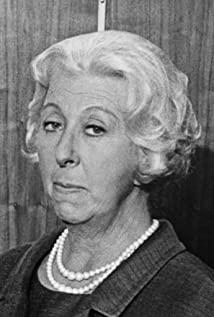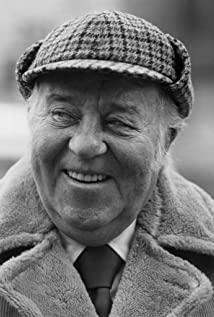Loving a person can do anything for him willingly, hating a person can make you want to destroy him in every possible way, these two extremes seem distant but easy to change, because betrayal is the most common catalyst in this world.
No. 7 Rating: 9.00
Synopsis
Sir Wilfrid (Charles Laughton), a well-known defence lawyer in London, has just been treated for a heart attack and has been asked to recuperate at home.
Since he had just finished the operation, he was forbidden to smoke or drink, and he was not allowed to take the case.
Not letting him do these things was worse than killing him.
On this day, lawyer Merlin came to visit with a man.
The man's name is Wall (Tarron Bower), and he's involved in a murder case.
The difficulty of the case and Wall's innocence appealed to Jazz.
Regardless of dissuasion, he decided to personally go out and help Wall fight the lawsuit.
Wall is a veteran who likes to invent gizmos when he doesn't have a job.
By chance, I met Mrs. French, a rich widowed woman.
Mrs. French seemed to be very interested in Wall's eggbeater, and she often invited him to the house as a guest.
But suddenly one day, Mrs. French was found dead at home, and Wall was the only person who had seen the deceased before the crime.
And Mrs. French attributed the estate to Wall, which also gave him a motive for murder.
All evidence seems to point to Wall, who is the criminal.
So the Jazz used his own method. He passed a special test and judged that Wall was not lying.
But the most important thing is to find evidence of his innocence.
The only person who can prove Wall's innocence is his wife, Christine (Marlene Dietrich), whose testimony confirms Wall's lack of time for the crime.
But after communicating with Christine, the Jazz decided not to let her testify in court.
Because all her words and actions seem to imply that her husband is the real murderer.
The trial finally began, and the first witness for the prosecution was the chief police patrol He En.
Horn pointed out that blood was found on Wall's coat and that the blood type matched the victim's.
No property was lost at the scene of the crime, and the traces of broken windows seemed to have been created by someone indoors, and it could almost be judged that it was done by an acquaintance.
But these were all defused by the Jazz's brilliant debate.
The second witness for the prosecution was Janet, French's servant.
Janet gave almost direct evidence that Wall was lying.
She claimed to have heard Wall and French speaking in the room just before the incident.
Jazz remained calm, not only thinking carefully, but also judging Janet's weaknesses through observation.
The defense again won plaudits.
However, it never occurred to me that the third witness invited by the prosecution turned out to be Wall's wife Christine.
And Christine's statement brought Wall to the brink of collapse.
He couldn't believe that the wife he had always loved could say that he had never loved her. How should the prosecution's change of tactics be resolved...
Video Analysis
Every time a friend asks me to recommend a suspense movie, I will first mention this "Prosecution Witness". It is the best work of Billy Wilder, the two-time Oscar winner for best director, and its story comes from the original novel of the famous British detective novelist Agatha Christie. That's enough for the nominated actors to take part in the performances. How about a near-perfect work from the director, screenwriter, and actors?
The plot of the film is interlocking, the details are ingenious, and several reversals are even more memorable. Before "The Witness for the Prosecution", I didn't watch much old black and white movies, because I always felt that the movies at that time were very "backward", and it was difficult to meet my viewing standards in terms of performance and film technology, but after that , I was conquered, and I began to search for some excellent black and white films on my own. It turned out that the enjoyment brought by returning to the basics is so different.
Tyrone Bower, the actor of the male protagonist Wall, almost gave a perfect performance, but unfortunately this is his last work on the screen. The next year he died of a heart attack while filming at the age of 44. age. The actors of Jazz and Nurse in the film are a couple in life. Both of them were nominated for Oscars for this work. The most surprising thing is that the actor of Christine was nearly sixty years old at the time. Ageless beauty.
Having seen several Billy Wilder works, what I like the most is his control of the rhythm of the film, without any hesitation. The style is completely different from that of Hitchcock, the master of suspense. Xi Fat is more obsessed with atmosphere creation, and sometimes the plot is very protracted, and the "good-looking" level is not as good as the former. After all, Billy Wilder is good at making comedies.
There are several interesting details in the film. Jazz just came back from the hospital, and the doctor forbade him to do three things, smoking, drinking, and taking cases, but these three things happened to be inseparable from his life, so the director wisely These behaviors are linked together. When lawyer Merlin came to the door, Jazz refused to meet him for physical reasons, but unexpectedly saw the cigar in Merlin's pocket. He was addicted to smoking and promised to give Merlin some advice, but the purpose was for the cigar, and among the people present, only the male protagonist Wall brought a lighter, which made the Jazz and Wall naturally connect together, which led to the following connection. Lower Wall's case.
During the trial, Jazz had to take medicine for physical reasons, which required him to carry a water bottle with him, which just gave Jazz a chance to put brandy in the water bottle. In one day, he did everything the doctor forbade him to do. The director didn't want to tell us that it was right, but to shape the character from the side, telling us that Jazz is a quick thinker and doesn't play cards according to the routine. The old fox laid the groundwork for his wonderful debate during the trial.
At the end of the film, the director deliberately reminded the audience not to spoil the show, because several reversals of the film are very unexpected and eye-popping. An unexpected ending is almost the standard for a good suspense film, but it could have reached this level 60 years ago. Kind of very rare. Generally, friends in the genre of suspense who have a certain amount of reading can almost guess when they go back to watching old movies, but "The Witness for the Prosecution" will definitely surprise you, because it has a sense of maturity beyond the age.
"Although the scale of justice is occasionally biased, it will eventually return to justice." Those who challenge the moral bottom line will not have a good end.
View more about Witness for the Prosecution reviews


